When you're stuck in the dog days of summer, mid-July is a great time to look back at the past for something totally frivolous. I've put together championship belt features on everything from running backs to quarterbacks to pitchers to American athletes, highlighting the best __________ in every year during a defined time period. Today, let's add another one to the list and create a championship belt for an oft-maligned, frequently underrated species: head coaches.
Here are the rules for the Head Coach Championship Belt:
We're looking at the four U.S. major professional sports. Apologies to the likes of Nick Saban, Pat Summitt and Sir Alex Ferguson, all of whom are brilliant in their respective fields. It's not a value judgment on their success, but to keep things simple, this belt goes to MLB managers and head coaches in the NBA, NFL and NHL.
You need to win a title to be eligible. Coaches such as Dan Quinn and Gregg Popovich deserve plaudits for what they accomplished in 2016 without winning a championship, but it's difficult to be the best coach alive if you're not raising a heavy trophy at the end of your season.
The year runs from February to February. A January-to-January award doesn't make a ton of sense, so the annual period of evaluation stretches from Super Bowl to Super Bowl. With that in mind, the coaches up for evaluation for the belt in 2016 are Bill Belichick, Tyronn Lue, Joe Maddon and Mike Sullivan. The 2017 season begins the day after the Super Bowl, so the coaches currently eligible to win next year are Sullivan and Steve Kerr, with the MLB and NFL nominees to be determined.
We're not using hindsight to evaluate. The idea is to pick the most accomplished coach of the previous 12 months as if we were picking on the day after the Super Bowl that ended that cycle. So while we know Tony LaRussa became an iconic coach with a lengthy career, and stuff like that might come up in this article to put things in context, the decision should consider only LaRussa's career up to the year in question.
It's better to win early and often. It's more impressive to win a title right off the bat than it is to meander around .500 for a decade before suddenly figuring things out and winning a trophy. Likewise, if a coach is great for four or five years but comes up narrowly short before finally claiming the big one, it should only add to his résumé as an excellent coach. If they've won titles in the past, even better.
There's a bonus for doing something historic. If a coach ends a devastatingly long cycle of heartbreak to win a championship, it adds to his aura. If he upsets a dominant team or beats a dynasty, that doesn't hurt, either.
To be the man, you have to hope the man loses. Although it's not impossible, it's awful tough for a head coach who currently holds the belt and backs it up by winning another title to lose the belt to someone else.
We're going to start in 1956 and, strangely enough for an award concerning the major American pro sports, it's not going to be in the United States:
1956-1960 | 1960s | 1970s | 1980s | 1990s | 2000s | 2010s
1956-60
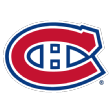
Toe Blake, Montreal Canadiens
I would say starting your coaching career with five consecutive Stanley Cup titles, as Blake did with the Canadiens, is a good way to earn your way onto this list. He has 11 Stanley Cup rings in total, winning three as a player before adding eight as a coach. Montreal went 40-9 during the playoffs over this five-year stretch, culminating with four-game sweeps of the Chicago Black Hawks and Toronto Maple Leafs during the 1960 playoffs. Chicago finally put Blake's streak to rest in 1961, beating Les Habs in six games during the semifinals.
1961-66
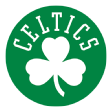
Red Auerbach, Boston Celtics
After Blake, the obvious candidate to take over is Auerbach. The longtime Celtics ambassador has a strong case as the most successful coach in the history of American professional sports, given his 16 titles as a coach or executive. He ran off eight consecutive titles to finish his career as a coach between 1959 and 1966, a feat that seems like it will never be touched again by a coach in the major professional ranks.
Of the eight titles from this run, the final one might have been the toughest. The Celtics finished second in the Eastern Conference that year behind Wilt Chamberlain's Philadelphia Sixers before beating them in five games in the Eastern Division finals. Then, facing the Los Angeles Lakers for the fourth time in five Finals, Auerbach's Celtics needed seven games and survived a furious fourth-quarter run in Game 7 from Los Angeles to seal another championship 95-93. Auerbach retired from coaching after the 1965-66 season.
1967
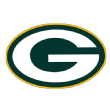
Vince Lombardi, Green Bay Packers
It's no surprise to see Lombardi on this list. It's more shocking, perhaps, that this is the only year he really qualifies for the moniker, but he's a victim of Auerbach's success. When Lombardi won his first title in 1961, Auerbach was winning his third consecutive championship. Lombardi won consecutive titles in 1961 and 1962 and three in a row from 1965 to 1967, but how could it be fair to take the nod away from Auerbach when he was winning title after title?
Lombardi finally sneaks in here, but he would also leave the sideline after this championship run. The two-time Super Bowl winner returned to coaching with Washington in 1969, going 7-5-2 before dying of cancer the following September.
1968

Toe Blake, Montreal Canadiens
Another skipper on his way out gets the nod here, as Blake wins his eighth and final Stanley Cup as Montreal's head coach before retiring from the bench. The Habs swept St. Louis in the latter's first Stanley Cup Final appearance, winning four consecutive one-goal games in the process.
You could make a case for Weeb Ewbank, whose New York Jets upset the heavily favored Baltimore Colts in Super Bowl III, but Ewbank had a 77-84-7 record in 14 years as a head coach before the 1968 campaign. While he had won two NFL championships earlier in his career, the Jets coach had rolled off five consecutive .500-or-worse seasons before an 8-5-1 season in 1967 and the title win the following year. The win certainly boosted Ewbank's stock, but Blake is one of the greatest coaches in North American sports history.
1969

Gil Hodges, New York Mets
Hodges gets the nod over Bill Russell, who had taken over as Celtics coach and won his second consecutive championship in 1969. Hodges took over the famously awful Mets in 1968 and turned things around quickly. The Mets were 61-101 in 1967, but they improved to 73-89 in 1968 before a shocking leap to an even 100 wins in 1969. The Amazins' then swept the Braves in the NLCS before running over the heavily favored Orioles in five games to claim the franchise's first World Series. Not too bad for a team that hadn't been close to posting a winning record at any point before Hodges' arrival. The former Dodgers star would manage the team for two more seasons, going 83-79 in each campaign, before dying of a heart attack in 1972 at age 47.
1970
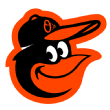
Earl Weaver, Baltimore Orioles
Weaver is remembered for his on-field tantrums, but he's also widely regarded as one of the most forward-thinking managers of his day. He anticipated many of the concepts that would be later borne out by baseball's analytical revolution. He was also a winner from day one. After winning the World Series in 1966, the Orioles went 76-85 in 1967 and 43-37 to start 1968 before replacing Hank Bauer with Weaver. Weaver went 48-34 during his debut season, a 95-win pace, and then followed that with a 109-win season in 1969. Although Weaver's Orioles lost to the Mets that season, Jim Palmer & Co. followed their disappointing World Series loss with a 108-win season in 1970 and the franchise's second World Series victory. Weaver never claimed another title, but he would post winning records in each of his first 16 seasons as a manager while posting a .583 win percentage, the fifth-best in history among skippers with more than 2,000 games at the helm.
1971
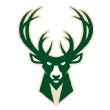
Larry Costello, Milwaukee Bucks
You could make a case here for Tom Landry, who took the Cowboys to the playoffs in five consecutive seasons (and lost three championship games in the process) before finally getting over the hump with a 24-3 shellacking of the Dolphins in Super Bowl VI. But I lean toward Larry Costello just by virtue of how quickly he managed to build a contender. He took over as coach of the expansion Bucks in 1968 and went 27-55. Milwaukee promptly drafted Lew Alcindor (later Kareem Abdul-Jabbar) with the first pick of the ensuing draft. They went 56-26 the next year. Before the 1970-71 campaign, they traded for Oscar Robertson. With Alcindor winning MVP, the Bucks went 66-16 and won 20 straight games before sweeping the Bullets in the NBA Finals.
1972-73
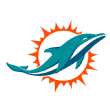
Don Shula, Miami Dolphins
You can make a case that the 1972 Dolphins are overrated by history, mostly by virtue of playing a remarkably easy regular-season schedule. Just two of Miami's 14 games came against teams with a winning record. The 1985 Chicago Bears and 2007 New England Patriots were more dominant against their respective opposition. But you know what? Undefeated is still undefeated. Don Shula went 71-23-4 and won an NFL Championship with the Colts before being poached by the Dolphins, who had gone 15-39-2 during their four seasons of existence in the AFL. Shula promptly ran off 10-win seasons in nine of the next 10 years. After losing the Super Bowl to the Cowboys in 1971, Shula took the 'Fins to back-to-back Super Bowl victories. Here, he fights off competition from Dick Williams, who managed the A's to consecutive World Series titles over the same two-year stretch.
1974-75
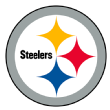
Chuck Noll, Pittsburgh Steelers
With four first-time champions, two of whom (Alvin Dark and Tommy Heinsohn) had inherited dynasties, 1974 was a weird year. Fred Shero was about to win the first of two consecutive Stanley Cups with the Flyers, but I'll stay in Pennsylvania and go with Noll, who turned the Steelers into the powerhouse we know today. We couldn't have known Pittsburgh would become a dynasty in 1974. Noll inherited a team that had gone 11-28-3 under previous head coach Bill Austin and was able to win only one lone game during his debut season. After improving each of the next two seasons, the Steelers took a leap forward in 1972 and went 11-3.
They lost in the 1972 and 1973 playoffs before finally prevailing in 1974, comfortably beating the Bills and Raiders before holding the Vikings' offense scoreless in a 16-6 Super Bowl victory. Noll repeated the next year with an even better team, one that went 12-2 with an .878 Pythagorean win percentage, one of the best marks in NFL history. The 1976 Steelers then started 1-4 before turning things around with the greatest second half from a defense in league history, pitching five shutouts while allowing a total of 22 points over eight weeks. They lost in the AFC Championship Game to John Madden's Raiders.
1976

Sparky Anderson, Cincinnati Reds
By this time, the Big Red Machine had taken over baseball. Sparky Anderson's Reds had built a dominant lineup and made their mark on the league as early as 1970, but they were repeatedly foiled in the playoffs, losing in the 1970 and 1972 World Series before being upset by the Mets in the 1973 NLCS. By 1975, Anderson's Reds were irresistible. The best Cincinnati team of the modern era posted a 108-win record en route to winning their first World Series in a legendary, seven-game nail-biter over the Red Sox.
That wasn't enough to pry the belt away from Noll and the repeating Steelers, but Anderson did enough to win the championship the following year. While those Reds weren't quite as dominant during the regular season, they won 102 games and made their mark in the playoffs. Joe Morgan & Co. swept the Philadelphia Phillies in three games before dispatching the New York Yankees in another sweep, winning their four games by a combined mark of 22-8. The Yankees led just once during the entire series. The Reds failed to make the playoffs in 1977 or 1978, leading to Anderson's surprising dismissal.
1977-79

Scotty Bowman, Montreal Canadiens
Arguably the greatest executive in the history of the NHL, Bowman first made his mark by pushing the aforementioned 1968 St. Louis Blues into an unlikely Stanley Cup appearance against the Canadiens. Four years later, Bowman moved to Montreal and took over the sport's preeminent team himself. He won his first Stanley Cup two years later, racking up an impressive 120 points, but couldn't beat out Shula for the 1973 belt.
From 1976 on, though, Bowman's teams were as dominant as any modern coach's. The Canadiens won four consecutive Stanley Cups while averaging nearly 126 points per season, including a league-record 132-point campaign in 1977. Had it been awarded, they would have won the Presidents' Trophy in three of those four years. Against what would presumably be the league's best competition in the Finals, Bowman's teams went a combined 16-3. Bowman was aided by brilliant general manager Sam Pollock, who retired after the 1979 Cup victory. When the Canadiens failed to give Bowman the vacant general manager job, he followed Pollock out the door.
1980
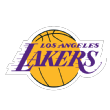
Paul Westhead, Los Angeles Lakers
Westhead's path to the top couldn't be charted. He was the head coach at La Salle for nine years before joining Jack McKinney's new staff in Los Angeles, where Jerry West had been reassigned from the head-coaching role to a scouting position. McKinney suffered a serious injury riding his bicycle 14 games into the season, and the Lakers had to turn the job over to Westhead, who went 50-14 before pushing a team with Kareem Abdul-Jabbar and a rookie sensation by the name of Magic Johnson to a remarkable playoff run. The Lakers beat the Sixers in six games to claim their first championship, with Westhead famously starting Magic at center in place of an injured Abdul-Jabbar in Game 6. Anticipating the position-less revolution doesn't hurt Westhead's rep, although he'd have to wait 27 years for his next championship, when he led the Phoenix Mercury to a WNBA title.
1981-83
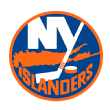
Al Arbour, New York Islanders
The NHL's next dynasty came out on Long Island, where another former Blues coach found more success elsewhere. Arbour won the Jack Adams Award in 1979 for his work in building the Islanders, whom he joined during their second year in existence. His first Stanley Cup came a year later, when the Canadiens were knocked off by the North Stars in a seven-game thriller. That cleared a path for a relatively middling 1980 Islanders team, which won just 56.9 percent of available points during the regular season, their first sub-100-point team in five years.
There were no such complaints about three Cup winners to come. Arbour's Islanders racked up 110 points during the 1981 season and beat the nascent Edmonton Oilers before sweeping the hated Rangers and taking down the North Stars in the Stanley Cup Final for their second Cup. They were even more dominant in 1982 -- 118 regular-season points with sweeps in the conference finals and Stanley Cup Final. Their stingy defense swept the devastating Oilers' offense for a fourth Cup in 1983, holding Wayne Gretzky, who had 196 points that season, to four assists in four games while outscoring the Oilers 17-6. Edmonton took over from that point forward, but Arbour had already made his mark on history.
1984
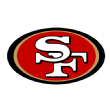
Bill Walsh, San Francisco 49ers
You could argue Walsh deserved the belt in 1981, given how quickly he turned around the 49ers. He inherited a 2-14 team and went 2-14 during his first season before jumping to 6-10 in 1980. With Joe Montana entering his first full season as the starter, an optimistic 49ers fan might have dreamed about a trip to the playoffs. Instead, Walsh's 49ers went 13-3 and then ran the table in the playoffs, prevailing over the Cowboys with "The Catch" in the NFC Championship Game before beating the Cincinnati Bengals in Super Bowl XVI.
The 49ers fell off to 3-6 during the strike-shortened 1981 campaign, but Walsh's teams won 10 or more games during each of his six remaining seasons as head coach. His 1984 squad was about as good as a football team can be. The 49ers went 15-1 during the regular season before an incredible playoff run: They beat the New York Giants 21-10, shut out the Bears 23-0 a year before Chicago's remarkable 1985 season, then stomped the Dolphins by 22 points in the Super Bowl. The Edmonton Oilers and coach Glen Sather finally broke through in the NHL, but Walsh was too good to be denied again.
1985
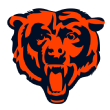
Mike Ditka, Chicago Bears
That aforementioned remarkable season propels Ditka to the top of the charts for a season. His 15-1 Bears are a totally viable pick for the best post-merger team in NFL history. Their schedule was league average, giving them a leg up on the Dolphins. And unlike the 2007 Patriots, who were dominant until losing in the Super Bowl, the Bears might have pieced together the best postseason in league history up to that point. They won their three games by a combined score of 91-10, shutting out both the Giants and Los Angeles Rams before allowing the Patriots 10 measly points. The Patriots picked up a Walter Payton fumble on the first series and threw three incomplete passes before kicking a field goal; they would later score the first and only postseason touchdown against the '85 Bears in the fourth quarter while down 41 points.
1986

K.C. Jones, Boston Celtics
While the Celtics started their stretch of success in the '80s with Bill Fitch as their head coach, Boston's legendary series of matchups during that time frame against the Los Angeles Lakers came with K.C. Jones opposing Pat Riley. Jones drew first blood, with the Celtics prevailing in a bitter seven-game series during the 1984 Finals, only for Riley and the Lakers to return the favor in 1985.
The anticipated rematch didn't take place in 1986, but the Lakers might not have had much of a chance. The Celtics won 67 games in the regular season and then dropped just one game during the first three rounds of the playoffs before the Rockets -- ironically, coached by Fitch -- stretched the Celtics to six games. Jones' Celtics finished the year 82-18, including an absolutely unreal 50-1 at home. By basketball-reference.com's Simple Rating System, this was the best Celtics team until the 2008 squad showed up.
1987-88

Pat Riley, Los Angeles Lakers
Another rookie head coach who won from the jump, Riley -- who took over for the deposed Westhead in November 1981 after Magic Johnson requested a trade -- quickly smoothed things over. Riley won Johnson's respect, went 50-21, and topped the Sixers in six games for his first title in his first year as a head coach at any level. The Lakers then split Finals with the Celtics in 1984 and 1985 before winning the rubber match in 1987. That 1986-87 team won 65 games and was the third-best Lakers team of all time, topped by only the 1971-72 and 1999-2000 teams.
After a remarkably healthy 1987 season, injuries and the further aging of a now-40-year-old Abdul-Jabbar sapped the Lakers a bit. They won 62 games in 1988 but still had to toil through a bitterly difficult playoffs, winning three consecutive seven-game series against the Jazz, Mavericks and Pistons to claim the franchise's sixth title in Los Angeles. Riley's Lakers would sweep through the first three rounds of the playoffs the following year before being swept themselves by the same Pistons. Riley left the organization for television a year later.
1989
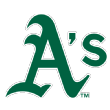
Tony La Russa, Oakland A's
After making the playoffs just once during his first 10 seasons as a manager with the White Sox and A's, something clicked for La Russa in 1988. Dennis Eckersley moved into the closer's role. Mark McGwire solidified himself at first base and was the Rookie of the Year. Dave Stewart turned into an ace, finishing third in the Cy Young voting. Put it all together and the A's won 104 games before losing in the World Series to Kirk Gibson and the Los Angeles Dodgers. A year later, they completed the rebuild by finishing things off in the playoffs, shutting down the Blue Jays in five games before sweeping the Giants in a World Series overshadowed by the Loma Prieta earthquake. La Russa's A's would win 103 games the following year only to be swept by the Reds in the World Series.
1990
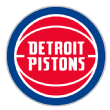
Chuck Daly, Detroit Pistons
In between the Lakers-Celtics battles and the Michael Jordan era, there were the Bad Boys. Chuck Daly took over a Pistons team that hadn't made the playoffs in six years and took them to the postseason in each of his nine seasons at the helm. The Isiah Thomas-led Pistons took the slow and steady path toward improvement, advancing to the conference finals in 1987 and the NBA Finals in 1988 before a 63-win Pistons team ascended to the mount in 1989. Detroit defended their title the following year, dispatching Jordan's Bulls in the conference finals for the second consecutive season before beating Clyde Drexler's Trail Blazers in five games. Daly would later coach the Dream Team to a gold medal during the 1992 Olympics, although his path to a third NBA title was blocked by Jordan.
1991

Tom Kelly, Minnesota Twins
Kelly might have deserved this honor for winning a World Series in his first full season as Twins manager in 1987, although that 85-77 team benefited from an ugly AL West before getting hot in the postseason. His Twins were far more impressive in 1991, as Kelly coaxed his team from worst to first in the West. The addition of Jack Morris and the ascension of Scott Erickson turned around the Twins' pitching staff, while Rookie of the Year Chuck Knoblauch shored up the offense's weakest spot at second. The unfancied Twins dispatched what would soon become a juggernaut in Toronto before beating the Braves in a classic seven-game series. Kelly's Twins would win 90 games the following year but post losing records in each of the eight ensuing seasons, only turning things around during Kelly's final season at the helm in 2001.
1992-93

Phil Jackson, Chicago Bulls
While Jackson is a punchline right now for his work in somehow dismantling an already dismantled Knicks team, the Bulls didn't turn things around until the former Knicks star showed up in town. The pre-Jackson Bulls topped out with 50 wins and a six-game loss in the conference finals to the Pistons. Jackson immediately took them to 55 wins, although they couldn't get past the Pistons at the same spot in the postseason. A year later, the Bulls broke through with a 61-win campaign, followed by a 15-2 run through the playoffs, culminating in a five-game victory over the Lakers.
I'd still give Kelly the nod over Jackson for 1991, but the Zen Master followed his first title as a coach with a 67-win 1993 campaign, as Jordan famously shrugged his way past Drexler's Trail Blazers in the finals. Jackson claimed his third title with a six-game victory over the Suns, at which point Jordan left for baseball. He -- and Jackson -- will be back.
1994
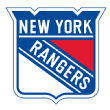
Mike Keenan, New York Rangers
Breaking a 54-year title-less stretch is a good way to get on this list. Keenan did just that in his first and only season with the Rangers. After taking the Philadelphia Flyers and Blackhawks to the Stanley Cup Finals without winning before subsequently flaming out of both cities, Keenan had a well-earned reputation as a coach who could get quick results before arguing his way out of everyone's good graces. He inherited a team that had gone 34-39-11 the previous year and quickly turned it into a 52-game winner despite trading goalie John Vanbiesbrouck in advance of the expansion draft.
Mike Richter emerged as a star, winning a pair of Game 7s against the New Jersey Devils and Vancouver Canucks, and Keenan became a folk hero in New York for about two months. He quickly got into a power struggle with general manager Neil Smith, leaving the team before he could defend the title with the Rangers. The big-spending Blueshirts would soon enter a stretch of eight years without a playoff berth and have made it back to the finals only once since Keenan's departure.
1995
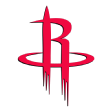
Rudy Tomjanovich, Houston Rockets
The West wasn't as loaded during Jordan's absence as it is now, but Tomjanovich's Rockets had to beat some stiff competition to make it to consecutive Finals. They toppled the Karl Malone-and-John Stockton Utah Jazz and the Charles Barkley-and-Kevin Johnson Phoenix Suns during each of their romps through the West. In 1994, Tomjanovich's team beat the Portland Trail Blazers in the opening round before their seven-game Finals victory over the Knicks, including the game that was famously overshadowed by the O.J. Simpson chase.
In 1995, having brought Clyde Drexler on board from those same Trail Blazers, the Rockets had to overcome a San Antonio Spurs team with two Hall of Famers in David Robinson and Dennis Rodman in the conference finals. They beat the Spurs in six and then swept the Magic, who had dismissed a returning Jordan in the divisional round, during an uneventful Finals for their second trophy. Houston hasn't made it back to the Finals since.
1996-98
Phil Jackson, Chicago Bulls
There are plenty of other candidates here, given that Bowman, Joe Torre and Mike Shanahan all won multiple titles over this three-year stretch, but Jackson has to take the cake in 1996 with that legendary 72-win season. The Bulls followed that up by dropping all of three games during the postseason, winning the first of three consecutive championships. Nobody's taking the belt from Jackson over this stretch.
1999-2000
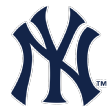
Joe Torre, New York Yankees
It's tempting to look toward Dick Vermeil, given how he managed to turn the St. Louis Rams into a Super Bowl winner with a previously anonymous Kurt Warner at quarterback, but it's also hard to ignore Torre's run of success with the Yankees. Torre had already won a title during his first season running the Yankees, in 1996, before starting a run of three consecutive World Series wins during the 1998 season. That 1998 team was one of the best in modern baseball history, going 114-48 before dropping a total of two playoff games across three series, but I just can't push Torre ahead of a three-peating Jackson. The Yankees' 1999 and 2000 teams weren't quite as good, but they continued to come through in the playoffs. Torre's reputation from those earlier titles helps push him over the top here, and he would have kept the belt if not for a Luis Gonzalez bloop single in the fall of 2001.
2001
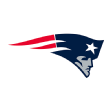
Bill Belichick, New England Patriots
Before Bill Belichick became the perennial favorite, he proved himself as a head coach by winning as the ultimate underdog. Belichick flamed out in Cleveland and had to rebuild his reputation working as a coordinator, much as Josh McDaniels has after a frustrating stint as Denver's head coach. Belichick took over the Patriots in 2000 and went 5-11 before running off star receiver Terry Glenn and losing Drew Bledsoe to a sheared blood vessel in his chest.
Expectations were low, and Belichick stunningly won anyway. He pieced together a great defense with a functional, conservative offense run by a then-limited Tom Brady. It would have been impressive enough to win 11 games with the unheralded Brady at the helm, but the Pats went further. They beat the Oakland Raiders in the famous tuck rule snowstorm game before becoming the first and only team in league history to win two games as double-digit underdogs during one postseason. Bledsoe filled in for an injured Brady in the AFC Championship Game to lead the Patriots over the 13-3 Steelers in Pittsburgh, and Belichick pieced together a masterful game plan to beat the devastating Rams in Super Bowl XXXVI. Belichick will be back, but it won't be as the underdog.
2002

Phil Jackson, Los Angeles Lakers
The 2002 season marked Jackson's third consecutive title with the Lakers and the sixth time in a row Jackson had coached his team to an NBA championship. This was coincidentally the worst of those three Lakers title teams; the 2000 squad won 67 games, and the 2001 bunch went 15-1 in the playoffs, with its only loss coming on the famous Allen Iverson shot over Tyronn Lue in Game 1 of the Finals. This team needed some questionable calls in Game 6 of the conference finals to get past the Sacramento Kings before sweeping the New Jersey Nets for Jackson's ninth title over his previous 11 seasons as a head coach.
2003-04

Bill Belichick, New England Patriots
He's back. The 2002 season is (so far) the only year in which the combination of Belichick and Brady failed to make the playoffs. Belichick's Patriots came back with a vengeance in 2003, winning 14 games while giving up a league-low 14.9 points per contest on defense. The Titans and Panthers both gave the Patriots trouble in the playoffs, but the Patriots comfortably handled the Indianapolis Colts in what would become a trend early on in the Brady-Manning rivalry.
I'm very tempted to make an exception and hand the belt for 2004 to fellow Boston coach Terry Francona, given that Tito rebuilt himself as a sabermetrically inclined manager after an ugly stint in Philadelphia and broke an 86-year-old curse for the Red Sox, but Belichick's Patriots went 14-2 and won another Super Bowl. I suspect Sox fans won't be too upset that the belt is sticking with Belichick.
2005
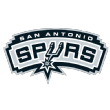
Gregg Popovich, San Antonio Spurs
There's something comforting about Belichick and Popovich trading the title belt. Pop won his first title during his third season as a head coach, the lockout-shortened 1999 campaign, when the Spurs parlayed the Twin Towers of Tim Duncan and David Robinson into a title. That team wasn't the Spurs core you think about from the Popovich era, and most of them were gone by the time the next Spurs title came around; after the 22-year-old Duncan, each of the seven other members in the Spurs' rotation to play 15 minutes or more per game were age 30 or older. Just two of those players -- Robinson and Steve Kerr -- were still on the roster when Popovich won his second title, in 2003.
By the time 2005 rolled around, the Spurs you know and love were mostly in town, with Tony Parker and Manu Ginobili forming a Big Three with Duncan that would last for a decade. These Spurs mostly coasted through the West before meeting their match with the Pistons in the NBA Finals. San Antonio needed a 3 from Robert Horry to win in overtime of Game 5 and then headed into the fourth quarter of Game 7 with the score tied at 57-57 before pulling away. Pop's third title pushed him ahead of Ozzie Guillen and Bill Cowher to top things this season.
2006
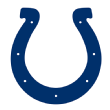
Tony Dungy, Indianapolis Colts
This was a weird year to judge. Tony La Russa's Cardinals won the World Series after going 83-78 in the regular season. Pat Riley ran Stan Van Gundy out of Miami in midseason and won his last title as a head coach after a 61-game regular season. The NHL returned from its season-long lockout and looked like a different league, with Peter Laviolette leading a Carolina Hurricanes team that had been 28-34-14 before the lockout to a 52-22-8 mark before beating the Buffalo Sabres and Oilers in consecutive Game 7s.
The best candidate for me is Dungy, who finally got over the hump after years of regular-season success. His Colts prevailed in a memorable comeback victory over the Patriots in the AFC Championship Game before comfortably handling the Bears in Super Bowl XLI. And while the Colts were an offense-minded team with Peyton Manning at quarterback, it was the Indy defense that showed up during the postseason. Bob Sanders & Co. forced a ridiculous 13 turnovers during their run to the title, the eighth-highest mark in league history. Dungy finished his coaching career with the fifth-best winning percentage among coaches with 200 games or more at .668.
2007

Tom Coughlin, New York Giants
Coughlin, a solid veteran hand who had enjoyed steady success with the Jaguars and Giants, claimed his first Super Bowl as a head coach in memorable fashion by upsetting the 18-0 Patriots as a 12.5-point underdog. In addition to that massive Super Bowl victory, Coughlin's Giants beat a pair of 13-win teams (the Dallas Cowboys and Packers) along the way. It's difficult to say whether Coughlin's decision to play the Patriots hard in a meaningless Week 17 game actually did propel the Giants in the playoffs -- it had more to do with how Eli Manning suddenly came into the light and avoided turnovers -- but it sure didn't seem to hurt.
2008

Mike Tomlin, Pittsburgh Steelers
It seems impossible to imagine now, but Tomlin was a controversial hire when the Steelers plucked him off of Minnesota's staff in 2007. He had been a defensive coordinator for only one year and had never been a head coach anywhere. There were concerns Tomlin would try to convert the Steelers from the 3-4 defense implemented by legendary defensive coordinator Dick LeBeau into the Tampa-2 shell he'd learned under Tony Dungy in Tampa. At 35, Tomlin surely couldn't be ready to take over one of the league's most storied franchises.
That was all nonsense. Tomlin quickly won over the locker room and hasn't stopped winning since. Pittsburgh made it to the playoffs during Tomlin's debut season and then went 12-4 a year later, beating the San Diego Chargers and the hated Baltimore Ravens before topping the Arizona Cardinals in a wildly entertaining Super Bowl. It took Chuck Noll six years to win his first Super Bowl, and Bill Cowher won his after 14 seasons. Tomlin lifted the Lombardi Trophy after only two campaigns in charge.
2009-10
Phil Jackson, Los Angeles Lakers
I'd love to give the 2009 belt to Sean Payton for attempting an unexpected onside kick to start the second half of the Super Bowl against the Colts, but it's impossible to deny Jackson his fourth and final stint with the crown. His 2008-09 Lakers won 65 games, and while they got some help when a 66-win Cleveland Cavaliers team was eliminated by the Orlando Magic in the East, Los Angeles then summarily dispatched Dwight Howard & Co. in five games. A year later, a Lakers team that wasn't as healthy turned things on in the playoffs, going 12-4 before prevailing over the Celtics yet again in a seven-game Finals. This was Jackson's 11th title in 19 seasons; he would retire from coaching after the Dallas Mavericks swept the Lakers in the Western Conference playoffs the following season.
2011

Tony La Russa, St. Louis Cardinals
Another legendary coach on his way out, La Russa won his third World Series title during his final year as a manager. As late in the season as Sept. 12, the Cardinals were so far out of the race that it was possible to get 999-to-1 odds on them to win the World Series. They went 11-4 from that point forward to claim a wild-card berth, with the Braves blowing a one-game lead with two games to go. The drama didn't end there. The Cardinals prevailed in a 1-0 nail-biter in the NLDS decider against the Phillies, and then beat the Milwaukee Brewers in six before an epic seven-game World Series with the Texas Rangers. Their series win probability fell to 2 percent in Game 6 before David Freese's triple over Nelson Cruz gave them life. One day later, La Russa had his final title.
2012

Bruce Bochy, San Francisco Giants
Two years after winning his first title in San Francisco, Bochy and his even-year Giants repeated the feat by taking down the Detroit Tigers in a four-game World Series sweep. Bochy navigated the loss of closer Brian Wilson in April and pieced together an effective bullpen out of the remaining options, eventually giving the job to Sergio Romo, who saved each of the four World Series contests. Bochy's decision to move Tim Lincecum out of the rotation after a frustrating year ended up working wonders when Lincecum was effective in relief during the World Series. He also managed to keep the Giants emotionally afloat when they went down 3-1 in the NLCS to the Cardinals, with San Francisco subsequently outscoring St. Louis 20-1 over the final three games of that series.
2013

Joel Quenneville, Chicago Blackhawks
Another longtime coach who finally broke through with the right team, Quenneville claimed the second of what would be three titles in six seasons with the resurgent Blackhawks. It came during a lockout-shortened, 48-game season, but Chicago was an incredible 36-7-5 during the abbreviated campaign. It won 80.2 percent of available points, comfortably the highest mark in the league. The Hawks got a little bit of help when the Boston Bruins swept the Pittsburgh Penguins in the Eastern Conference finals, but with Quenneville settling on Corey Crawford in net over Ray Emery, the Blackhawks came back from down 2-1 in the Final to win another Stanley Cup in six.
2014

Gregg Popovich, San Antonio Spurs
Back to Pop, who nearly unseated the mighty Miami Heat if not for Ray Allen's miraculous 3-pointer in Game 6 the previous year. (You might argue that Popovich could be faulted for having Tim Duncan on the bench during the offensive rebound that set up that 3.)
By 2014, though, Kawhi Leonard had emerged as enough of a force to prop up the aging Duncan-Parker-Ginobili core, and the Spurs weren't going to be denied. They beat the Heat in five and broke up the Big Three for good. Popovich deserves a ton of credit for keeping a bunch of guys in their mid-30s healthy enough for the playoffs while incorporating a bevy of role players (Marco Belinelli, Boris Diaw, Danny Green, Patty Mills) who were castoffs elsewhere.
2015
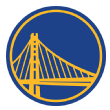
Steve Kerr, Golden State Warriors
Before the Warriors were a superteam, they were simply a super team. Few coaches in history have had a more successful debut season behind the bench than Kerr, who took over a Warriors team that was still finding its identity. After deciding against the Klay Thompson-for-Kevin Love swap, Kerr helped refine the Warriors' offense, which improved from 12th in offensive rating during Mark Jackson's final year at the helm to second in 2015 (and then to first in each of the two ensuing seasons). Golden State jumped from 51 wins to 67, raced through the Western Conference playoffs and dispatched LeBron James and the Cavs in six. Along the way, Kerr made drastic lineup shifts before eventually stumbling upon the Death Lineup, whose latest iteration sealed up another championship in Game 5 last month.
2016
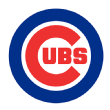
Joe Maddon, Chicago Cubs
Our reigning champion seems as if he might be able to hold the title for only one year, but all Maddon did to earn the nod was break a 109-year streak and bring a championship to the North Side of Chicago. Maddon earned plaudits for his work on a shoestring budget in Tampa Bay, although he wasn't able to get the Rays over the hump in the 2008 World Series, when they lost to Charlie Manuel's Phillies in five games. With a small army of homegrown bats and imported pitching, Maddon kept the Cubs steady as they came back from 3-1 down against the Indians and eventually won their first World Series since 1908.
In many ways, Maddon is the prototypical 21st-century manager. He's amenable to new sources of information and is often ahead of the curve; think, as an example, about how the Cubs stopped shifting last year and still produced one of the best defenses in baseball history. He's at ease dealing with modern clubhouses, manufactures social media moments that engage both players and fans alike, and handles the media as well as any manager in the league. Even if Maddon's Cubs don't make it back to the summit this year, he has made his mark in Chicago lore.
2017
TBA
The favorite for 2017 right now has to be Penguins head coach Mike Sullivan, who won his second consecutive title as head coach by prevailing over the Predators. But there's still plenty left to be determined. The Cubs are still favorites to win the NL Central, even as they sit 4½ games behind the Brewers, but they'll need to maneuver a difficult National League playoffs against the Nationals and Dodgers. Bill Belichick's Patriots are favorites to repeat as Super Bowl champions, and it would be hard to pick against him (or whoever manages to beat him in a playoff game), too. Coaches are less likely to enjoy dynasties these days, which speaks to how difficult the competition is versus 50 years ago. It's hard enough to beat the other teams in your league to a title, let alone prevail over three excellent coaches in other leagues.
